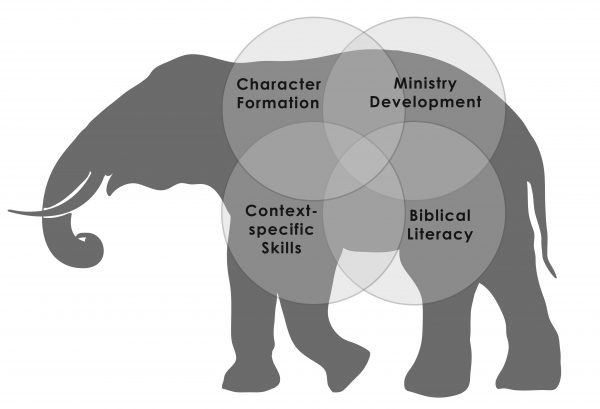Christ-centered leadership (CCL) has become familiar verbiage over the past decade. Like “servant leadership,” its usage is ubiquitous, but its meaning varies among those who use the term. A quick Google search for CCL yields a range of definitions that include acting with integrity, hearing God’s voice, and being anchored in the presence, power, and ministry of God. What distinguishes Jesus’ leadership in light of more dominant leadership models of His day and ours?
Read moreLast week examined the categories for effective Christ-centered leadership development that make up its components. An organization or ministry may focus on one or more of these categories.
- character formation
- biblical literacy
- context-specific skills
- ministry development
By sizing up the task before us, knowing we are functioning in these categories, we think that all’s well that ends well, right? Yes, but here’s the caveat. Research shows that “while every emerging Christ-centered leader needs all four of these categories to be truly effective, no single school or service provider is proficient to develop leaders effectively in all four categories.
Read moreSpiritual Leadership This post is part of a series on Spiritual Leadership. When FTL went into South Asia for the first time in 2010 we knew we were committing to a specific group of church and ministry leaders for the long haul. And they were committing to us. Although our initial commitment was a four-year program that would feature eight leadership development modules and one-on-one mentoring, we really didn’t know just how much God would stretch and mold and use us for His purposes. We heard the calling and had the vision. We even had what we thought was a clear strategy for Phase 1 of this ministry. We set out to make a dent on the world. But I don’t think any of us really expected the impact it would have, both on our lives personally and in the way we look at Christ-centered leadership.
Read more

